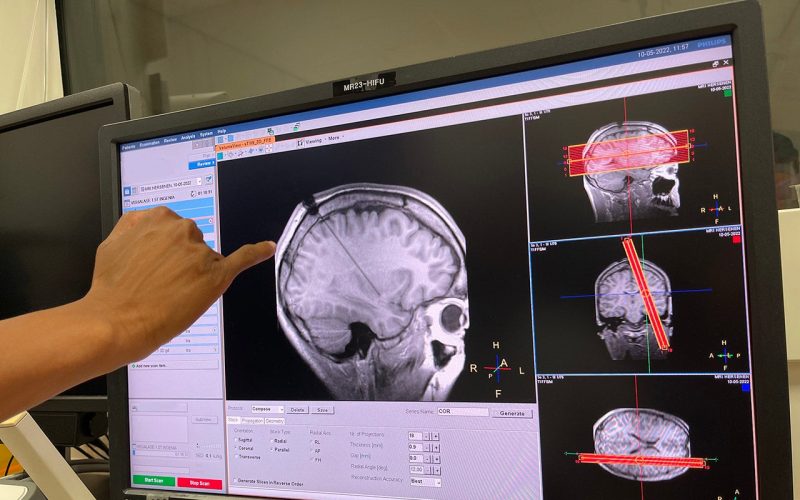Last week at UMC Utrecht, for the first time in the Netherlands, MRI-guided laser ablation in the brain was performed on two patients with epilepsy. Until recently, patients from the Netherlands who needed to undergo this treatment had to go to Houston (USA) or London (UK). Due to the high costs, a minimal number of patients qualified for this.
Laser ablation is an operation with minimally invasive technique (through a small incision) that allows the targeted burning away of the epilepsy foci with laser light. The tissue causing the epilepsy is heated, causing it to die. The procedure takes place in an MRI scanner, allowing the surgeon to have instant real-time images of the epileptic foci during treatment and to very precisely burn away the tissue causing the epilepsy. This prevents damage to surrounding tissue with important functions. An additional advantage of laser ablation is that the treatment takes less time and is therefore less stressful for the patient. The patient also recovers faster from the procedure and can go home sooner.
For some epilepsy patients, “regular” brain surgery poses too great a risk, for example when the area to be operated on is difficult to reach or if the epilepsy foci are scattered in the brain. Laser ablation now offers these patients the prospect of treatment. Last week, surgeons operated on a patient who was indeed ineligible for regular surgery. They also operated on a patient who was at high risk of losing her sight with ordinary surgery. The surgeries went well, but the effect can only be assessed after several weeks, when it will be clear whether the number of seizures has decreased.
Each year, a few Dutch epilepsy patients are treated abroad with laser ablation. Now that the treatment is available at UMC Utrecht, more patients can be helped with it.
Together with Radboud UMC, UMC Utrecht is also conducting research into laser ablation for brain tumors.
The treatments are performed within the Brain Center of UMC Utrecht. This center is a national and international center of expertise for refractory epilepsy and is part of the European Reference Network (ERN) “EpiCARE”. Within the center, clinical expertise is combined with scientific research, both to provide the best care and to contribute to new developments and treatment options for people with refractory epilepsy. UMC Utrecht has a close collaboration with SEIN, expertise center for epilepsy and sleep medicine.
